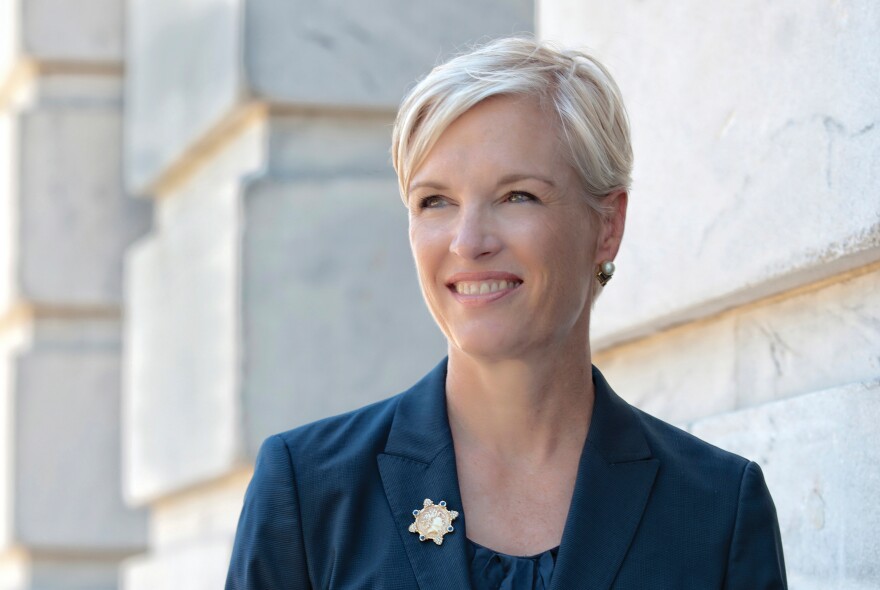Most people know Cecile Richards as the fearless head of Planned Parenthood. But long before she was fighting Republican senators in Congress or pro-life demonstrators, she was finding ways to “make trouble.”
It began with her refusal to say the Lord’s Prayer in sixth grade. A teacher labeled her a troublemaker the next year when she wore an armband to school protesting the Vietnam War. That was the end of Richards’ days in public school and probably the beginning of her efforts to challenge and buck the system.
Richards just released “Make Trouble: Standing Up, Speaking Out, and Finding the Courage to Lead--My Life Story” (Touchstone/ 2018). Her stories range from being on the campaign trail with her mother, Ann Richards, as she ran for Texas governor, to stumping for Hillary Clinton.

She joins host Frank Stasio to share the bits of her life in between the well-known moments and what is next as she steps down from leading Planned Parenthood. Richards will be at a ticketed event in Pittsboro at McIntrye’s Books on Sunday, April 15 at 2 p.m. in conversation with Michele Tracy Berger, professor of women’s and gender studies at the University of North Carolina at Chapel Hill.
INTERVIEW HIGHLIGHTS
On the timing of her departure from Planned Parenthood:
I’ve had the honor of doing this job now for about 12 years, and it’s an incredible organization. It provides healthcare to one in five women in this country. And there’s always some fight we’re in, and certainly this president has been no friend to Planned Parenthood. But we are, I think, stronger than we have ever been. We actually beat back, as you know, the effort to defund Planned Parenthood last year and even the effort to repeal Obamacare. We have now more than 11 ½ million supporters across the country. And I think it’s important for us in the social justice movement that we step aside and make room for a new generation of leaders. And that’s what I think I’m doing.
On her meeting with Ivanka Trump and Jared Kushner after the election:
With trepidation, I agreed to the meeting, and it turned out she was going to bring her husband Jared Kushner. So I got my husband Kirk, who is also an organizer, to come with me. And we met. I’ll go anywhere to explain to people about the great work Planned Parenthood does, and I did that. I told them about the millions of people who count on us for healthcare – particularly women in many parts of the country who have no other affordable healthcare provider. But as it turned out … Jared Kusher’s push was that he thought if we would just stop providing abortion services to women in America then he would get in touch with Paul Ryan and somehow secure funding for Planned Parenthood. I

just said: We’re not going to do that. That is not going to happen. It really felt like some kind of political trade off, and we just don’t trade off the rights of women in America.
On what’s next for her career:
When I finish up with Planned Parenthood in May, I will be spending all of my time focussed on registering, engaging and turning out voters for the November election, because there’s nothing more important to me. And I feel like there’s an enormous amount of energy out there. Folks are ready. I think folks are concerned about the direction of the country. And I think we have to make sure people know that voting is the way to really change things.
On the role of women’s healthcare in the midterm election:
One of the things we fought so hard for under President Obama was to get birth control covered for everyone in insurance plans. As a result, today more than 62 million women get that coverage with no copay. It’s saved them money, and we’re also now at a historic all-time low for teenage pregnancy. This is incredible progress as a public health good and economic benefit for women. But they are keenly aware that this administration is trying to roll back both the access to birth control, access to maternity care, you know, things that are fundamental issues for women regardless of their party.



